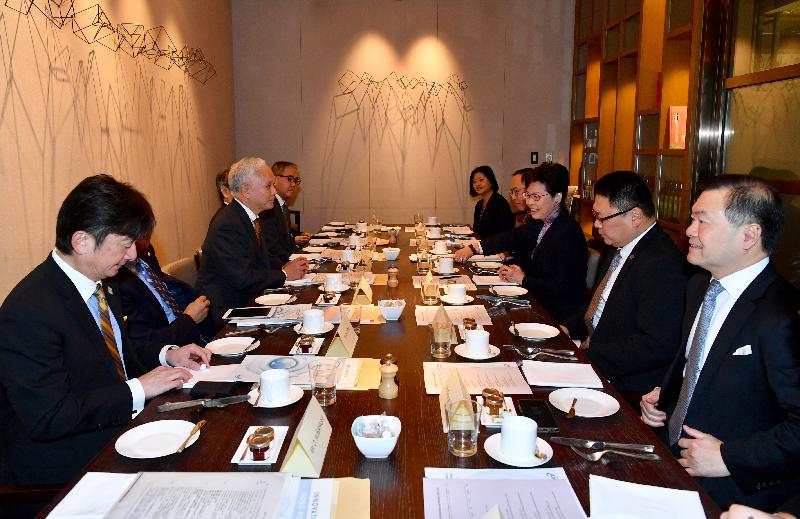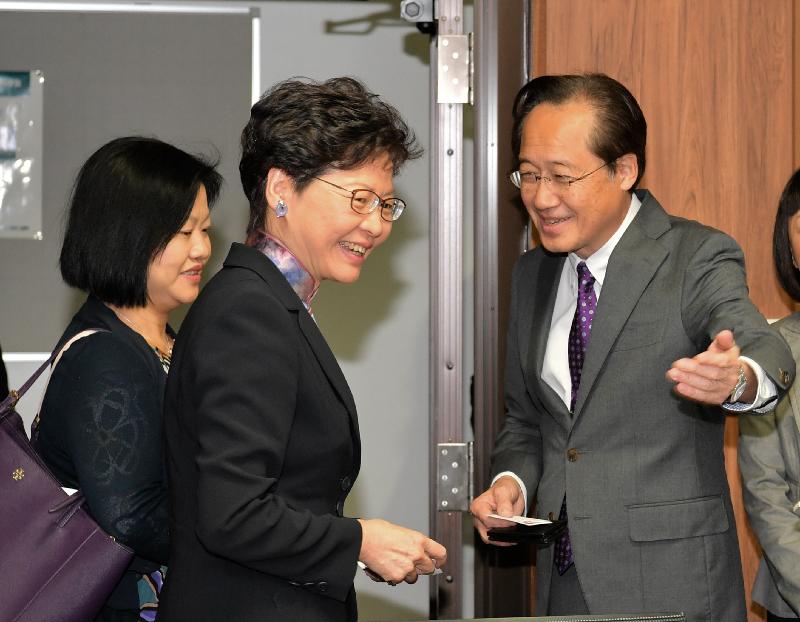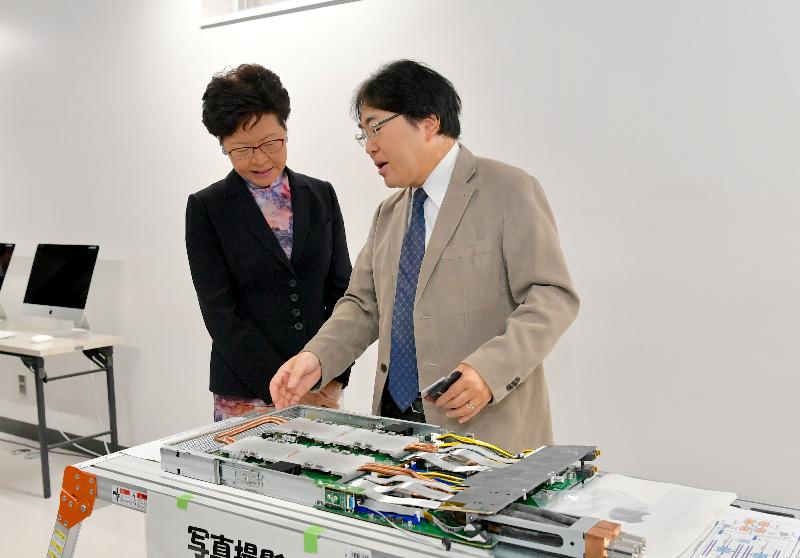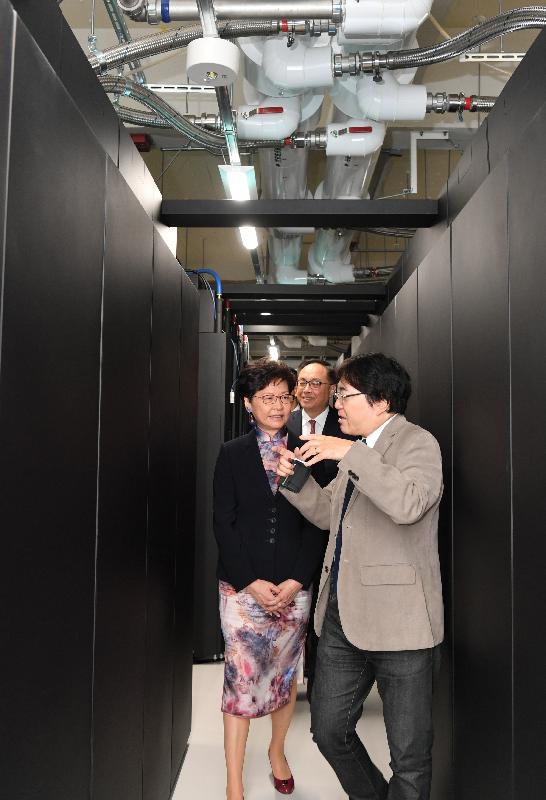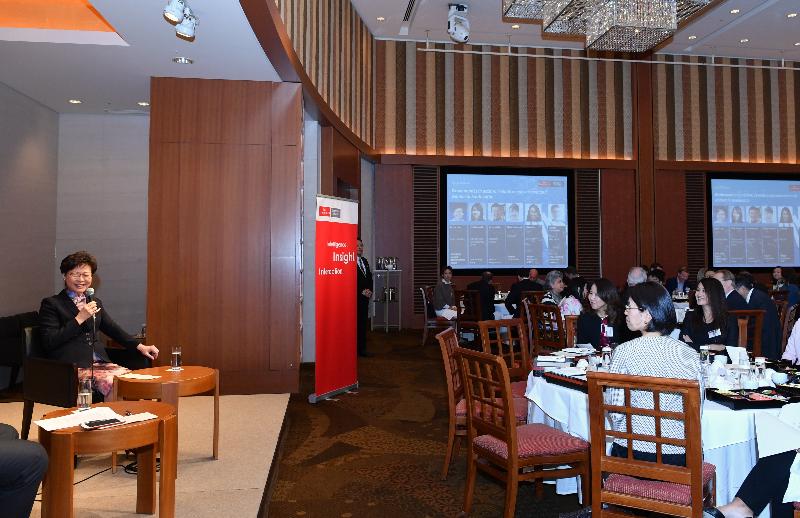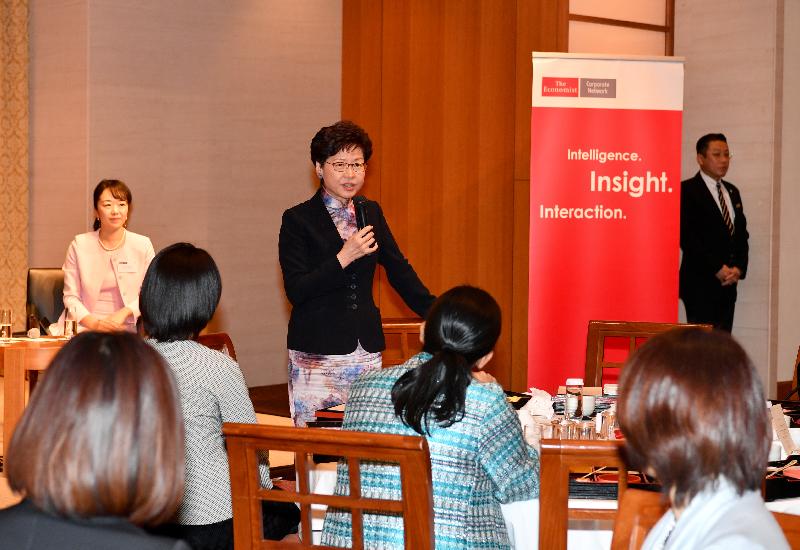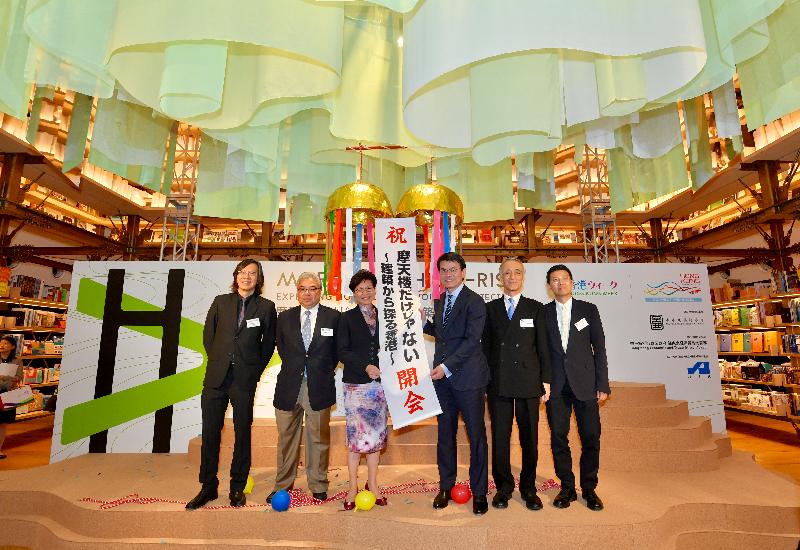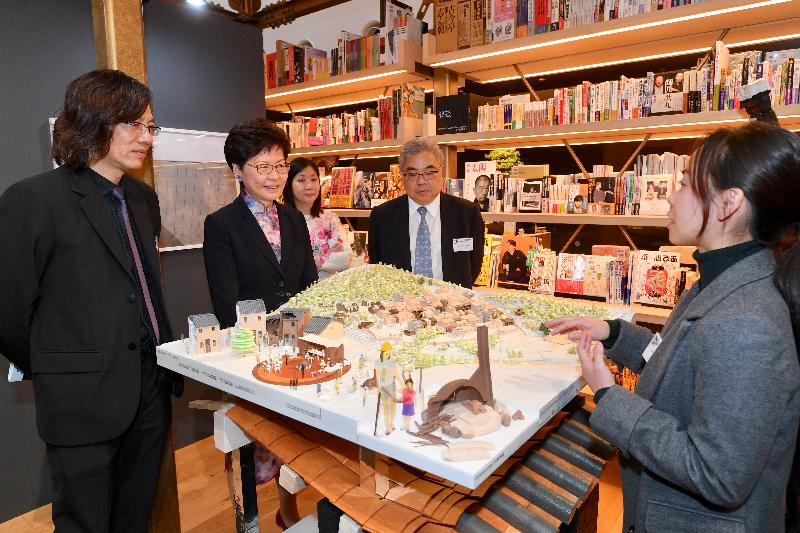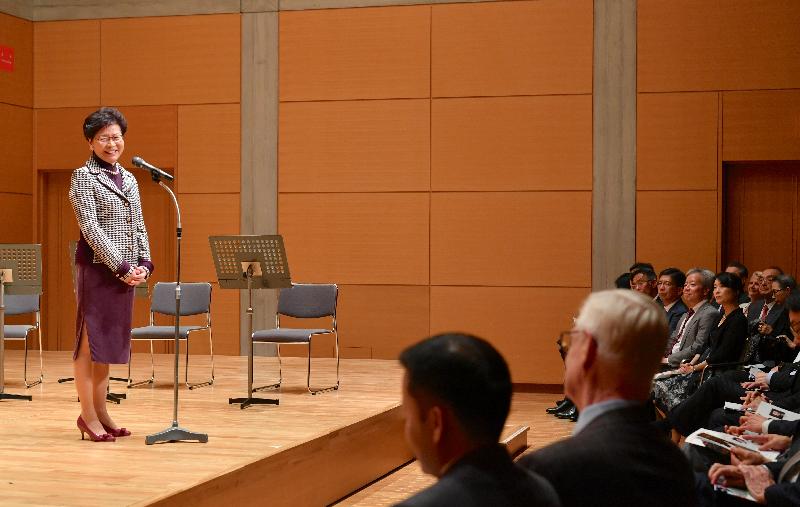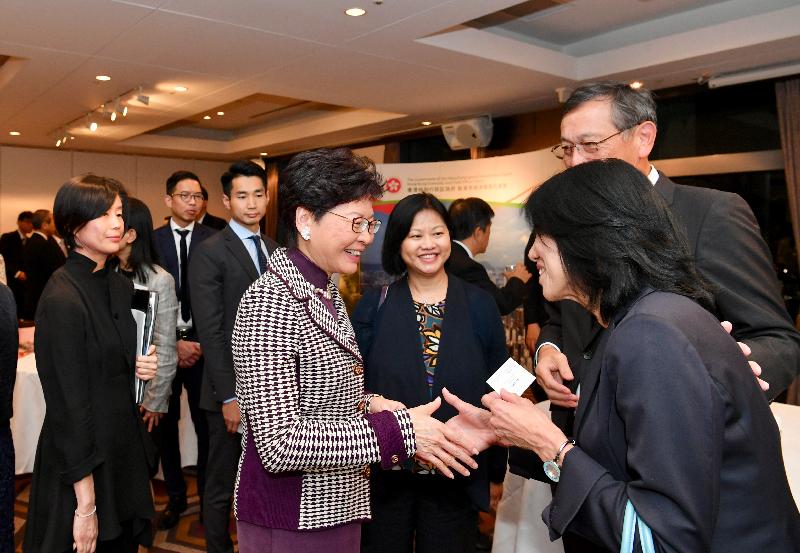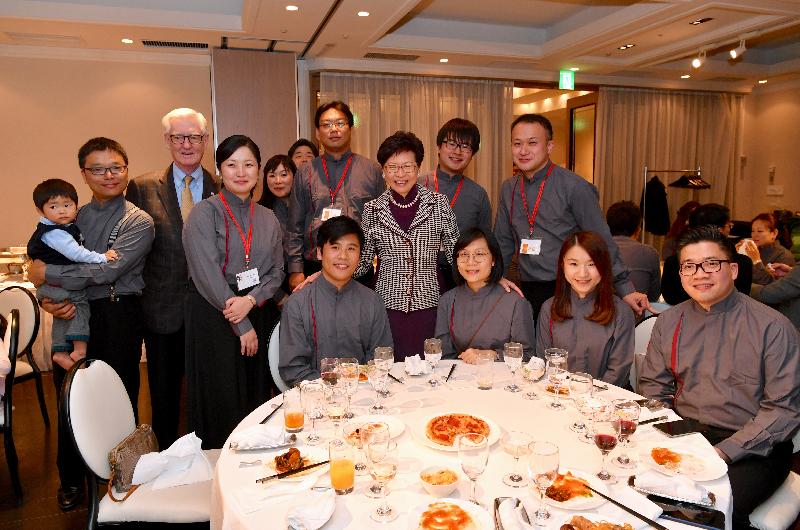Following is the transcript of remarks by the Secretary for the Environment, Mr Wong Kam-sing, on the introduction of the Waste Disposal (Charging for Municipal Solid Waste) (Amendment) Bill 2018 into the Legislative Council at a media session at the Central Government Offices, Tamar today (October 31):
Secretary for the Environment: The Government will introduce the Waste Disposal (Charging for Municipal Solid Waste) (Amendment) Bill 2018 into the Legislative Council (LegCo) on November 14 to underpin the implementation of municipal solid waste (MSW) charging.
The implementation of MSW charging sits at the centre of our overall waste reduction strategy. It will provide the necessary financial incentives to drive behavioural changes and encourage various sectors of the community to practise waste reduction and clean recycling. Experiences in other cities clearly show that it helps reduce waste disposal effectively. Amid the increasing waste disposal level in Hong Kong, which is higher than those in other cities like London and Seoul, in addition to combat climate change, we should introduce MSW charging to promote waste reduction and recycling in order to reduce carbon emissions.
Over the past few years, the Government has been consulting various stakeholders and the community to build understanding of and support for the introduction of this major waste reduction policy and on the relevant implementation arrangements. Last year, having regard to the views received from various trades, we announced the modified charging arrangements, which expand the scope of the use of pre-paid designated garbage bags to cover some 80 per cent of the MSW being disposed of every day. The remaining MSW will be subject to a “gate fee” when it is sent to landfills or refuse transfer stations for disposal. The modified arrangements have been largely accepted by the trades and the community.
We do not underestimate the challenges of implementing MSW charging on a territory-wide scale, and have formulated a pragmatic strategy to put this into practice.
The key strategy can be represented by “ECO”: “E” stands for “education”, “C” stands for “community support” and “O” for “outreaching assistance”.
Number one, education and publicity hold the key to the implementation of MSW charging. Under the theme of “Dump Less, Save More”, we will launch a territory-wide publicity and public education campaign, which will put due emphasis on first-hand participation, collaboration with various stakeholders and provision of on-site assistance.
Secondly, community support. The Government will put in additional recurrent resources to support the community to practise waste reduction at source and clean recycling. As recently announced in the Policy Address, the Government will first provide an additional provision of around $300 million to $400 million for the next financial year, which will be further increased to no less than $800 million to $1,000 million from the financial year when the MSW charging is to be implemented. The amount of this annual provision would be comparable to the estimated gross revenue to be generated from MSW charging, so as to achieve the effect of “dedicated fund for dedicated use”.
We plan to make use of additional resources to provide free territory-wide collection service in respect of waste plastics from non-commercial and industrial (C&I) sources and food waste from all sources in the longer run subject to the outcome of the pilot schemes on non-C&I waste plastics and C&I food waste, and implement a pilot scheme to assess the effectiveness of applying reverse vending machines in promoting the recycling of plastic beverage containers.
Thirdly, outreaching assistance. We plan to make use of additional resources to set up outreaching teams to provide on-site assistance to the community, thereby putting waste reduction and recycling, as well as MSW charging, into practice.
Lastly, I would like to say that it will take time to cultivate the necessary behavioural change. To this end, we will put in place a preparatory period of 12 to 18 months after the passage of the Bill to provide the Government, different stakeholders and other people with appropriate time to prepare for the implementation of MSW charging. We estimate that MSW charging could be implemented by end-2020 at the earliest. Let’s support the “Dump Less, Save More” movement to make Hong Kong cleaner and greener in the long run. Thank you.
Reporter: What would be the penalty of not using the designated rubbish bag? Also, how can it be executed? People living in a building will throw their garbage to the garbage room on the floor, so how can you identify which bag is from which home?
Secretary for the Environment: I think the enforcement challenge is not only faced by Hong Kong, but also elsewhere which have similar waste charging mechanisms. As I have said earlier, public education and publicity is the priority, as it has been adopted in other cities. After that, enforcement arrangement will be a backup and we will have a risk-based approach. That means, if there are areas identified with frequent fly-tipping, relevant authorities will be notified and necessary enforcement arrangement will be made. Certainly, we will receive complaints on repeated locations (that do not used designated bags), and we will have arrangement on the enforcement plan.
Reporter: Mr Wong, the introduction of the MSW charging bill has been further delayed, and lawmakers will oppose to the bill. How would you assess the public perception and knowledge of this plan? Do you think many of them know about it and how is it going?
Secretary for the Environment: I would like to share with you that over the past period of time, we have been in contact with stakeholders, including business sectors, green groups, education sector, etc. My feeling is that many Hong Kong people are actually supportive to a greener and waste less society in Hong Kong. For lawmakers, we will go through our lobbying process and it is not without challenge. I think we will try our best endeavours to liaise with them because the current proposal has been improved and enhanced. It is a balanced approach, a practicable approach. Certainly, it takes time for Hong Kong to build up various facilities on recycling infrastructure. We will convince them that MSW charging policy should be given priority. Similarly in other cities, they implement MSW charging first, and at the same time they also push ahead other recycling and supporting facilities in parallel.
Reporter: Can you tell more about the penalty? Penalty for not using the bags?
Secretary for the Environment: As I said earlier, publicity and education is the priority but we will also have the enforcement arrangement. Each time if one is caught, the minimum fixed penalty is $1,500. The amount is equivalent to a typical family’s waste charging for a few years. So it would be a substantial warning to individuals if they are not following the law.
Reporter: Now that the implementation of the MSW charging will be postponed one year, how about the year 2022 waste reduction target? Will it be affected?
Secretary for the Environment: As I said earlier and similar to other cities, direction is the key. The timeline will be affected by various factors, including our waste blueprint and the timeline set for the latest MSW charging bill. I think the emphasis should be placed on the direction. We hope to gain the support from lawmakers for the passage of the bill. So, direction is the key.
(Please also refer to the Chinese portion of the transcript.) read more


